I have some helpful tips to help you beat the competition and get ahead of the game in the German job market!
As a European HR consultant, I worked in recruiting for a period of time and during my experience with hiring new employees I managed to gather some really useful tips and tricks to land your dream job in Germany! Plus I was lucky enough to get some valuable insight from other HR professionals from top companies all around Germany.
In this blogpost I will reveal Top 10 best kept secrets of working in Germany and a detailed step-by-step guide to finding a job in Germany. I will cover the most popular job application questions, such as:
- How to write a successful CV,
- How to write a good cover letter,
- How to pass a job interview!
Also included in the blog:
- Job application tips,
- CV Templates,
- Cover letter Templates,
- Job Application Examples,
- And much more!

Have a question?
Take online language lessons with a professional teacher
- Native & verified teachers
- Free trial lesson
- Learning materials included
Sign up for free Writing a good CV is winning half the game. So before you rush to apply for work in Germany, you need to make sure that your CV is competitive, up-to-date and communicates your value to the company well! Research shows that your CV can make or break your chances of getting a job in Germany so it’s very important that you invest a proper amount of time to polishing up your CV. It's imperative that you strike a healthy balance: don’t skimp on the important details but don’t turn it into your award-winning autobiographical novel!
Here are the answers to some FAQ’s about CV writing in Germany:
- What is a resume? A resume is a document that represents your value to your future employer in the form of a summary of all of your professional experiences, skills and abilities.
- What is a CV? CV means curriculum vitae, which a Latin term for "courses of life".
- What is the difference between CV and resume? There is no difference. Both terms refer to the same thing.
- What is a resume called in Germany? Lebenslauf.
- How long should a resume be? Your resume should be 1-2 pages long (however, most employers prefer 1 page length). Make sure your resume is not overloaded with information – leave some white space for easy scanning.
- What fonts are best for resume? The standard is Times New Roman, Calibri or Arial.
- What font size is best for resume? No smaller than size 12.
- How to name a resume? Use following format to save your file: Last Name_First Name_Resume.pdf
- How to name a cover letter? Use following format to save your file: Last Name_First Name_CoverLetter.pdf
- What file format to use for a CV? Write your resume in Microsoft Word and save it in .pdf format to make sure it does not get disfigured when viewed by your future employer.
- How to structure a CV? Germans follow a strict CV structure. Start with work experience, then move on to internships, volunteering and academic experience in that order. Save your skills and abilities for last. Each section should be structured in a chronological way, from most recent to least recent.
Those are just the very basics of CV writing. If you want your CV to be successful in Germany, it needs to be very high quality.
Luckily for you, I know some CV writing tips for German market!
Check out this useful checklist for German CV requirements:
- Last Name and First Name,
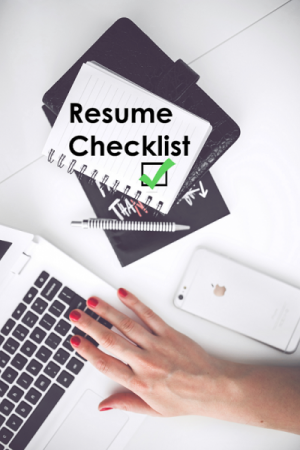
- Nationality (specify if you are from a non-EU country),
- Date of Birth (written as January 21st 1991),
- Current address,
- E-mail Address (preferably @gmail.com),
- Telephone Number,
- University name and location (include study abroad universities!),
- Type of studies - Bachelors, Masters, PhD, etc.
- Major studied and important subjects learnt (include your grade),
- Dates of attending (if you are still studying, write 2012-present),
- Work Experience,
- Internship Experience,
- Volunteering Experience,
- Scholarships and Awards received,
- Languages known (include all levels of proficiency),
- Organizational skills (related to work within a company),
- Social skills (related to communication),
- Computer skills (software that you can use proficiently),
- Driving licence,
- Other important details relevant to the job.
Use this CV example used to apply for work in a German company showing the precise resume structure in Germany:
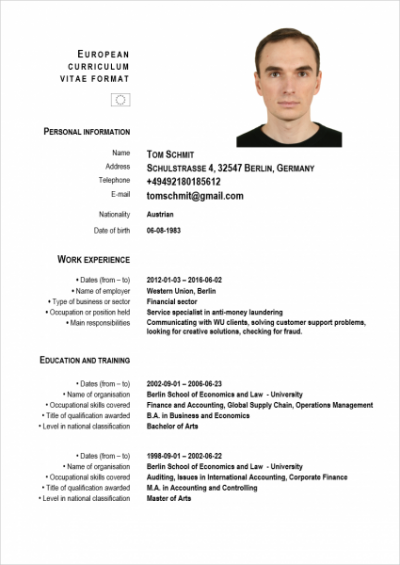
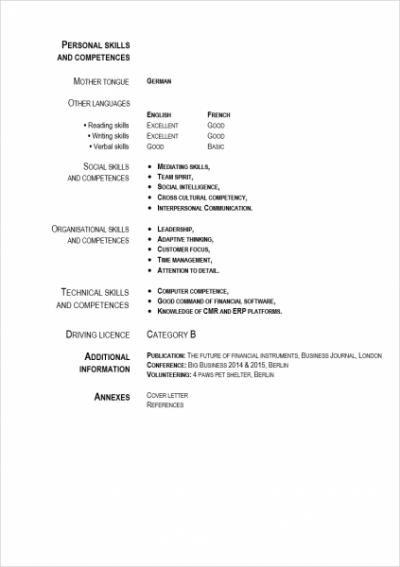
Download your FREE Resume Example and Resume Template at the bottom of the page.
I think this goes without saying: details are very important! Germans are very detail-oriented and will notice immediately if you haven’t put enough work into your job application. If you are smart, you will invest time into polishing the key details of your CV because they are what will separate you from other job applicants also looking for a job in Germany.
The best pro tip for a successful CV in Germany: get your photo done professionally!
Example of a professional photo: Example of an unprofessional photo:


Your CV picture should be located on the top of the first page, either on the left or right side. Get a professional CV photo, stay away from old photos or bad quality shots that your friends took – they just won’t do! You might want to invest in a high quality resume photo to help you shine and look your best - a person that German companies would want to employ! Head to your local photo center or try a photo booth.
Some important details in a good resume picture are:
- A confident smile,
- White teeth,
- Clean and professional hair style,
- Formal clothing,
- For men: a shaved face.
- For ladies: natural look with little make-up.
These key details will help you achieve an overall well put-together look and put a confident face to the name on your resume.
Other important details when applying for a job in Germany are:
- References: Prepare a separate file with a list of professional references to strengthen your CV (be sure to ask permission first)!
- Recommendations: Collect 2-3 strong recommendation letters from your past employers to support your job application.
- Design: Don’t be afraid to style-up your resume with a professional design or even download a pre-made template off the internet (just don’t overdo it – play it safe!).
For practical CV Templates and more tips about the CV format in Germany, check out this article: Thelocal.do/jobs
We all want to look presentable and, most of all, employable to our future boss. While we may spend a lot of time improving our resumes and photos, few of us may think to clean up some social media disasters that may pop up when your employer decides to Google you or look you up on social media. This is a standard procedure to recruiting as it helps the company quickly discard some bad apples that may bring a bad image to the company.
Here is a handy-dandy cheat sheet to help you make a good impression on your German employer:
- LinkedIn – it’s one of the most popular professional networking websites on the market and best of all – it’s absolutely free! Think of it as your second resume. Create an account if you don’t have one already and be sure to update it regularly! Build professional networks, present yourself professionally and you might get noticed!
- Facebook – don't let it ruin your image - stick to classy photos and background and be sure to clean up all questionable posts, shares and media uploads. You want to look grown up and professional even in Facebook, so get rid of all information that might influence your boss to change his mind about hiring you.
- Other social media sites – this includes Twitter, Instagram, Snapchat, etc. They should not diminish your integrity and reliability in the eyes of your future boss and colleagues. Trust us, it’s better not to have any social media profiles than to have bad ones.
If you have followed all 3 previous steps - hurray! You are now ready to start looking for a job in Germany! But we have compiled a helpful list of German websites that list job vacancies for English speakers in Germany looking for work that doesn't require German language.
Here are the Top 10 best sources to find work in Germany:
- Reed.co.uk
- Expatjobseeker.de
- TheLocal.de
- GermanyStartupJobs.com
- Xpatjobs.de
- Multilingualcareers.eu
- Jobs.goabroad.com
- Multilingualvacancies.com
- Internations.org
- Justlanded.com
There are many more sources of work in Germany out there! Try googling “work in Germany” or “jobs in Germany” for more results!

Your cover letter should be written with confidence and determination - it's your selling pitch to the employer! Present yourself in the best light possible, focus on your best qualities and skills and skip unnecessary details that don’t help you get the job. This point is key: reveal only the information that is relevant to the job you are applying to, including academic, professional, volunteering and extracurricular activities (like clubs you are a part of or conferences you attended)!
IMPORTANT: German cover letters are formal, they should not be written in a casual style!
Here are the answers to some FAQ’s about cover letters in Germany:
- What is a cover letter? A cover letter is a document that contains a short introduction of your professional and academic competences and complements your CV.
- What is a motivational letter? A motivational letter is a document that expresses your motivation for the job you are applying.
- Cover letter vs. Motivational letter: what is the difference? There is no difference, they are the same exact thing.
- How long should the cover letter be? Limit your cover letter to 1 page maximum.
- What font is best for cover letter? Stick to Times New Roman, Calibri or Arial. It should match your resume!
- What font size is best for cover letter? No smaller than size 12. It should be the same as your resume.
- What is the structure of a cover letter?
- 1st paragraph (1-2 sentences): state the purpose of writing your cover letter – identify which position you are applying, in which company and where is it located.
- 2nd paragraph (3-6 sentences): introduce yourself, state your name, where are you from, what university/college you attended, what major you studied, what have you learnt, what jobs have you worked and in which companies, etc.
- 3rd paragraph (3-4 sentences): state how your previous experience has helped prepare you for the job – mention skills, abilities and experiences that you acquired during your career and studies and how will they help you fulfil your duties.
- 4th paragraph (3-4 sentences): describe your personality, work ethic, philosophy and any other skills that aren’t directly related to the work (languages, for example).
- 5th paragraph (1-2 sentences): thank the reader for their time and consideration and state that you are very eager to hear from them in the near future. End on a positive note, don't sound needy.
Here is a helpful guide to how to write the best motivational letter for work in Germany:
- Put your contact information at the top of the cover letter,
- Personalize your cover letter to the company,
- Space out your paragraphs,
- Stick to the same overall design as your resume (font, size, etc.),
- Write confidently and positively,
- Do not abbreviate words,
- Be formal but also personable and warm.
Top 5 worst mistakes to make in your cover letter: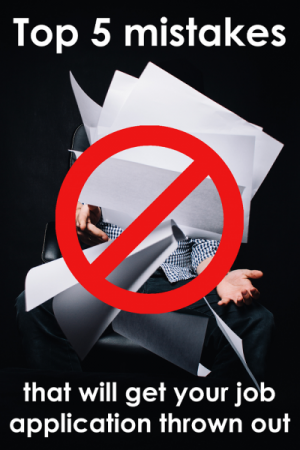
- Unprofessional E-mail - Please do not use something like crazybunny69@yahoo.com. Create a professional-sounding email on google.com with a form of your name, for example: tomschmit@gmail.com. Employers won't even open emails that are sent from suspicious-sounding sources, so keep this in mind when forwarding your job application!
- Spelling Mistakes - Before you send off your job application, be sure to check your cover letter and resume for spelling and grammar mistakes! These are a big no-no when applying for work so take an extra minute or two to scan your application for errors.
- Unprofessionalism - When applying for a position in Germany, you need to maintain a degree of respect and professionalism. Phrases such as “call me”, “please hire me” or “I need this job” will get your application thrown out.
- Lack of Structure - We provide a template for a reason – structure is very crucial in your cover letter! Germans have a keen eye for structure and appreciate a well-structured cover letter. Follow the cover letter structure closely for best results.
- Copy-pasted text - We stress the importance of personalizing your cover letter – appeal to the company by researching its goals, mission and vision and adjust your cover letter to resound them. Don't copy other people's cover letters because it will hurt you if the employer catches you!
Here is an example cover letter:
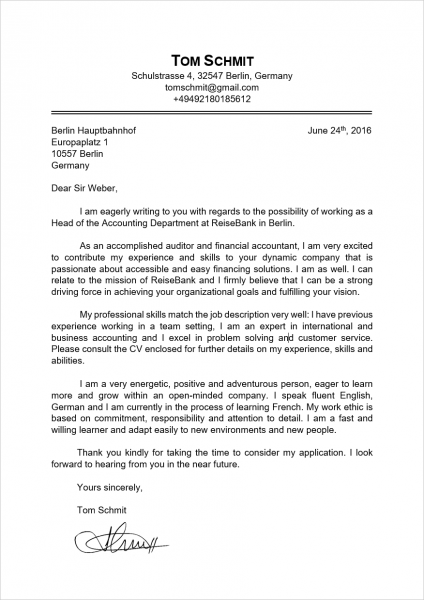
Download your FREE Cover Letter Example and Cover Letter Template at the bottom of the page.
Contacting the employer to submit your job application is a crucial step. You spent a lot of time preparing for this moment: your resume is superb, your cover letter is polished and you are feeling confident! Before you send off your application, it is wise to give it a second look!
What do you need to include in your job application?
- Resume,
- Cover Letter,
- Additional:
- Recommendation letters,
- List of references.
- Example of your work,
- Other important documents (visa, work permit, etc.).
5 important things to consider before you send your job application:
- Do you have a professional e-mail already? If not, go create one.
- Did you check your resume and cover letter for spelling mistakes? If not, do so now.
- Is your text and photo professional? If not, take some extra time to invest in a more professional look.
- Are all of your documents saved in a .pdf format? If not, follow these instructions in Microsoft Word: Click on File>Save as>Save as type>PDF.
- Did you name your documents in an easy-to-find way? If not, follow the following format for your resume: Last Name_First Name_Resume.pdf and other documents.
Having trouble writing a job application? No worries!
Here is a sample job application text you are welcome to use:
Dear Sir/Madam (name of HR manager),
I am writing to you in regards to the job application for the (position) at your company (company) in (location).You will find my CV and cover letter attached. I have also included some relevant documents for you: (name documents).Please feel free to contact me if you are any questions regarding my application or experience. I would be very happy to provide you with all the necessary additional information and documents.
I look forward to hearing from you in the near future.
Kind regards,
(Your name and last name)
(Address)
(Phone number)
This catchy introduction is sure to save your job application from the trash!
Interviews can be stressful and nerve-wrecking, but if you landed one, you can be sure that your resume and cover letter impressed the company. So there is definitely something to be confident about!
Whether it’s a real live interview or an online interview over skype, there are some key things to remember:
- Punctuality – being late on your interview can ruin your chances of getting the job. It’s better to come early than come late!
- Dress code – dress formally and uphold a professional look. Do not wear exuberant accessories or overdone makeup and hair. Be modest and conservative with your look.
- Posture – sit straight, shoulders pushed back, don’t slouch like you’re at home on the couch.
- Preparedness – this means researching the company beforehand: when was it founded, by who, who is the current president, what services/products it deals in, what is its mission, vision and objectives, etc.
- Remember names – note the names of the interviewers and try to remember them for future reference.
Top 3 things that are crucial for a live interview: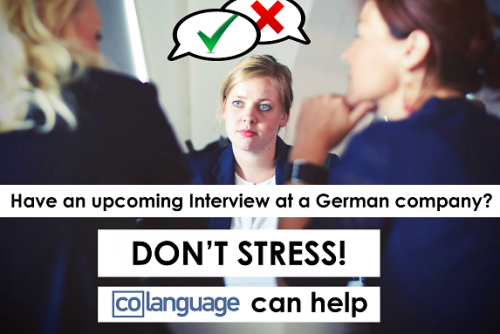
- Handshake – firm but not bone crushing. Shake hands upon arriving and before leaving.
- Eye contact – being able to keep eye contact during the interview is very important to create an aura of confidence and trustworthiness.
- Resume – bring extra copies to the interview to give out. Make sure your resume is available in both English and German versions.
P.S. if you are doing an interview through Skype – remember to look at the camera, not yourself and don't forget to wear pants!
Here are the smart steps to take after completing your job interview:
- First contact – call or write to your company in 1-2 days after the interview.
- Mention the names of the people you met during your interview and visit at the company - thank them for their time and let them know you were very excited to meet them and that it was a wonderful experience.
- Let them know they can contact you if they need any additional information, or documents, like a reference list or a recommendation and that you will be happy to supply these documents for them.
- DO NOT ask for an update on the application process! The purpose of this contact is to remind them of you, not give them additional work.
- After a decision – write or call the company after the decision has been made.
- Thank them for their consideration regardless of whether they accepted you or not.
- If you got accepted – ask for details about your first day at the job (when you start, what time you need to be there, what you need to bring, etc.)
- If you got rejected – stay cool and confident, wish them well.
If you have secured a job – congratulations! But before you jump into working, you need to learn the intricacies of German business communication in order to be able to communicate effectively within the company and build lasting relationships with your boss and collegues. Every culture is different and the German business culture has specific phrases, body language and norms that make their communication unique. Master them and you will avoid many uncomfortable situations!
Here are my Top 10 tips for effective business communication in a German company:
- Greetings - In Germany, greetings are formal. Greet people with a firm and professional handshake.
- Introductions - Wait to be introduced to a group of people.
- Respect authority - use titles when addressing people: use Herr (Mr) and Frau (Mrs) and then their last name.
- Business Meetings - meetings are scheduled in advance, follow a strict format and are quite formal.
- Don’t be overly friendly – Germans don’t need personal friendships to work together effectively.
- Office manners - If you want to enter someone’s office – knock and wait to be invited.
- Punctuality - being on time is absolutely crucial – both for work and meetings.
- Gesturing - Tapping knuckles on the table is a sign of approval at the end of a meeting.
- Rules and structure – German business culture follows stick hierarchy and rules so it’s important that you respect it, even if it seems too bureaucratic.
- Directness – Germans don’t like small talk, so stick to the business and don’t be surprised with their blunt and direct manner of communication.

While working in Germany with only English knowledge is possible, it will only get you so far. Most German companies expect their foreign employees to learn German eventually. Research shows that not knowing the local language can drastically limit your work opportunities within the company, such as:
- Promotion of job title,
- Increase in pay,
- More responsibility,
- Close relationship with the management,
- Full-time employment,
- And others!
Luckily for you, learning German is not as far-fetched and difficult as it may seem!
coLanguage offers you the amazing opportunity to improve your chances of working permanently in Germany. We will guide you each step of the way during the job application process and help you make the most of our resources in order to boost your attractiveness to your future boss! Best of all - we will customize your German lessons to fit YOUR learning needs and YOUR profession for the best learning results!
Here is what coLanguage is ready to help you with:
- How to write a CV in German,
- Cover letter in German,
- Prepare for a Job Interview,
- Master German communication,
- Learn conflict resolution within a company,
- Professional standards in Germany,
- Working knowledge in Germany,
- German business vocabulary,
- German business culture,
- German etiquette for meetings,
- Crash course in everyday German,
- And much more!
coLanguage is a well-established multinational company with offices in Munich, Germany. We have close knowledge of the German work environment and we would love to coach you! We guarantee success in conquering the German labour market through our innovative teaching methods, such as:
- Live skype lessons,
- Native-speaking teachers from all around the world,
- Personalized homework,
- FREE learning materials (books, videos, etc.),
- FREE learning plan (individualized for your learning needs),
- FREE certificate upon completion of the course!
Learn how to get noticed and get a raise: Start learning German with coLanguage!










